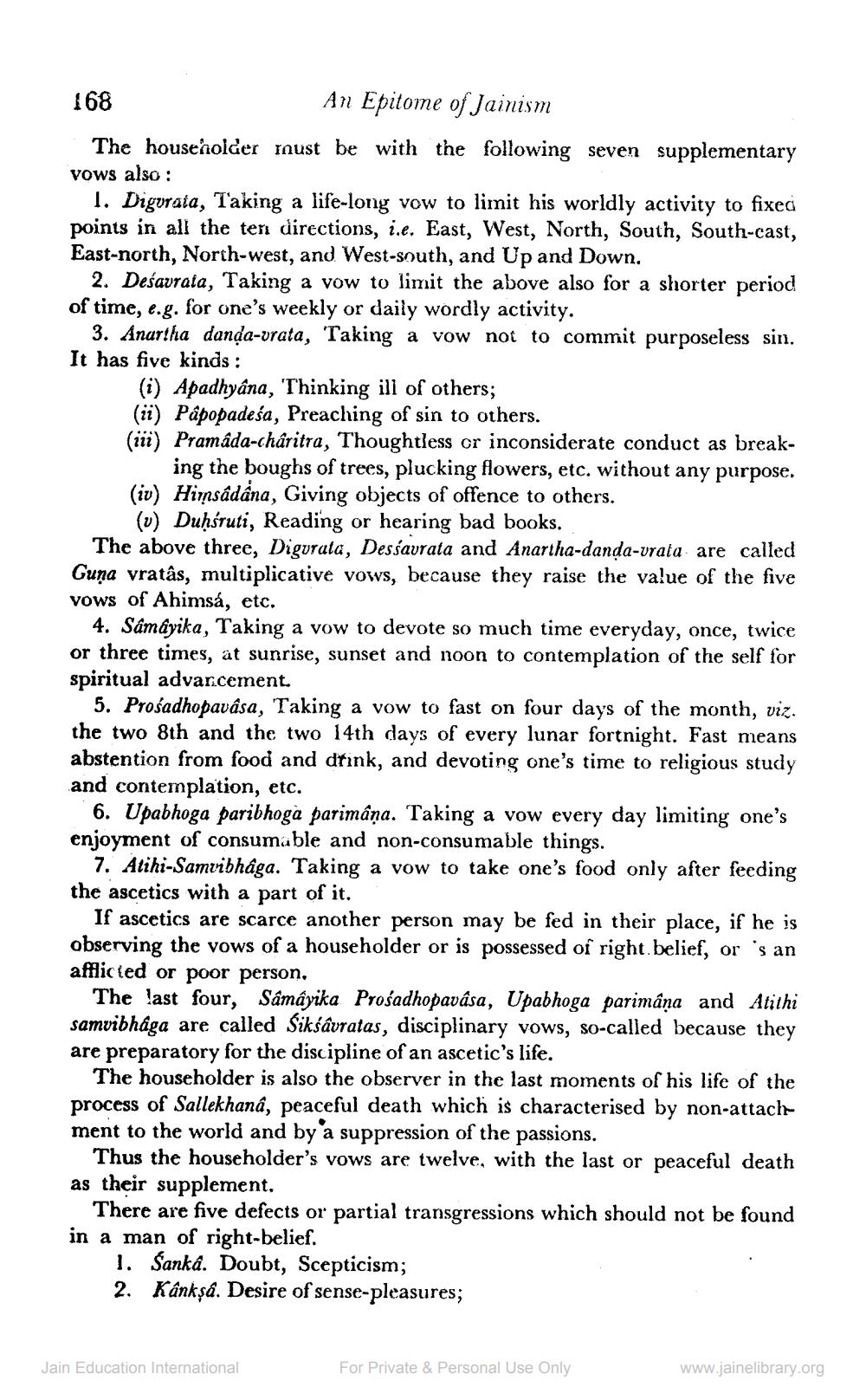________________
168
An Epitome of Jainism The householder must be with the following seven supplementary vows also :
1. Digurata, Taking a life-long vow to limit his worldly activity to fixed points in all the ten directions, i.e. East, West, North, South, South-cast, East-north, North-west, and West-south, and Up and Down.
2. Deśavrata, Taking a vow to limit the above also for a shorter period of time, e.g. for one's weekly or daily wordly activity.
3. Anartha danda-vrata, Taking a vow not to commit purposeless sin. It has five kinds :
(i) Apadhyâna, 'Thinking ill of others; (ii) Pâpopadeśa, Preaching of sin to others. (ii) Pramada-chấritra, Thoughtless or inconsiderate conduct as break
ing the boughs of trees, plucking flowers, etc. without any purpose. (iv) Hirnsâdâna, Giving objects of offence to others.
(v) Duḥśruti, Reading or hearing bad books. The above three, Digurata, Dessavrata and Anartha-danda-vrata are called Guna vratâs, multiplicative vows, because they raise the value of the five vows of Ahimsá, etc.
4. Sámáyika, Taking a vow to devote so much time everyday, once, twice or three times, at sunrise, sunset and noon to contemplation of the self for spiritual advancement.
5. Prośadhopavasa, Taking a vow to fast on four days of the month, viz. the two 8th and the two 14th days of every lunar fortnight. Fast means abstention from food and drink, and devoting one's time to religious study and contemplation, etc.
6. Upabhoga paribhoga parimâņa. Taking a vow every day limiting one's enjoyment of consumable and non-consumable things.
7. Atihi-Samribhaga. Taking a vow to take one's food only after feeding the ascetics with a part of it.
If ascetics are scarce another person may be fed in their place, if he is observing the vows of a householder or is possessed of right belief, or 's an afflicted or poor person,
The last four, Sámáyika Prośadhopavasa, Upabhoga parimana and Atithi samvibhaga are called Siksâvratas, disciplinary vows, so-called because they are preparatory for the discipline of an ascetic's life.
The householder is also the observer in the last moments of his life of the process of Sallekhana, peaceful death which is characterised by non-attachment to the world and by a suppression of the passions.
Thus the householder's vows are twelve, with the last or peaceful death as their supplement.
There are five defects or partial transgressions which should not be found in a man of right-belief.
1. Sanka. Doubt, Scepticism; 2. Kankşå. Desire of sense-pleasures;
Jain Education International
For Private & Personal Use Only
www.jainelibrary.org




